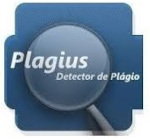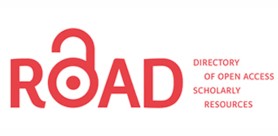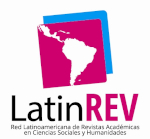THE PLAYFULNESS IN THE TEACHERS 'SPEECH IN CHILDHOOD EDUCATION
DOI:
https://doi.org/10.47180/omij.v1i2.56Keywords:
Playfulness, Nurseries, Learning, Children, BNCCAbstract
The objective was to analyze how teachers understand playfulness in the teaching process and its relevance for learning in a public daycare center in the municipality of Queimadas-PB. It was a qualitative research with an exploratory-descriptive procedure method, where questionnaires with open and closed questions applied to nine teachers were used. The analysis of the results showed that the research participants understand the child development process and recognize the importance of playfulness in their pedagogical practices, in the teaching and learning process. The study indicated that the participants have acquired knowledge that ensures their playful educational actions. The investigations, according to the theoretical framework and statements of the teachers, led us to conclude the need for a restructuring or in-depth training regarding pedagogical practices related to the knowledge of the Common National Curricular Base, indicating, therefore, the need to train these active teachers and future generations, about this new perspective of reference, as well as getting to know and use it in their pedagogical mediations.
Downloads
References
BRASIL. Ministério da Educação. Base Nacional Comum Curricular – BNCC. Brasília, DF, 2018.
______. Ministério da Educação. Base nacional comum curricular. Brasília, DF: MEC, 2015. Disponívelem: <http://basenacionalcomum.mec.gov.br/documento/BNCC-APRESENTACAO.pdf>. Acesso em: 28 fev. 2020.
_____. Parecer CNE/CEB nº 20/2009 e Revisão das Diretrizes Curriculares Nacionais para a Educação Infantil. Brasília, 2009.
FALCÃO, A. P. B.; RAMOS, R. O. A Importância do brinquedo e do Ato de Brincar para o desenvolvimento psicológico de crianças de 5 A 6 anos. Belém, 2002.
FONSECA, V. Aprender a aprender: a educabilidade cognitiva. 1998.
KRAMER, S. Com a pré-escola nas mãos: uma alternativa para a educação infantil. São Paulo: Ática, 2009.
KISHIMOTO, T. M. Brinquedos e brincadeiras na educação infantil. BRASIL. Ministério da Educação e da Cultura, Conselho Nacional de Educação, Câmara de Educação Básica, 2010.
LEFÈVRE, F.; LEFEVRE, A. M. C. Depoimentos e discursos: uma proposta de análise em pesquisa social. In: Depoimentos e discursos: uma proposta de análise em pesquisa social. 2005.
MALUF, A. C. M. Brincar, prazer e aprendizado. Petrópolis, RJ: Vozes, 2003.
MATOS, E. S. Identidade profissional docente e o papel da interdisciplinaridade no currículo de licenciatura em computação. Revista Espaço Acadêmico, v. 13, n. 148, p. 26-34, 2013.
MOYLES, J. R. Só brincar? O papel do brincar na Educação Infantil. Porto Alegre: Artmed, 2002.
OLIVEIRA, D. R. A formação continuada de professores de primeiro ano do ensino fundamental de nove anos e os desafios ao trabalho pedagógico. 2011.
OLIVEIRA, Z. M. R. Educação Infantil: fundamentos e métodos. Cortez Editora, 2014.
ORLANDI, E. P. Análise de discurso: princípios e procedimentos. Campinas: Pontes, 1999.
PIAGET, J.; ÁLVARO C.; OITICICA, C. M. A formação do símbolo na criança: imitação, jogo e sonho, imagem e representação. 1971.
PIAGET, J. A formação do símbolo na criança. Rio de Janeiro: Guanabara Koogan, 1978.
_______ . Para onde vai à educação? Rio de Janeiro: Livraria José Olympo Editora/Unesco, 1973.
SARGIANI, R. A. Fases iniciais da aprendizagem da leitura e da escrita em português do Brasil: efeitos de fonemas, gestos articulatórios e sílabas na aquisição do mapeamento ortográfico. 2016. 215 f. Tese (Doutorado em Psicologia). Universidade de São Paulo, São Paulo, 2016.
VIGOTSKY, L. A formação social da mente. São Paulo: Martins Fontes, 1994.
WAJSKOP, G. O brincar na educação infantil. Cadernos de pesquisa, n. 92, p. 62-69, 1995.
YIN. R. K. Estudo de caso: planejamento e métodos. 3. ed. Porto Alegre: Bookman, 2005.
Downloads
Published
How to Cite
Issue
Section
License
The authors declare that any work submitted, if accepted, will not be published elsewhere, in English or in any other language, and even electronically, unless it expressly mentions that the work was originally published in the Journal.













